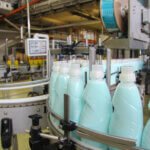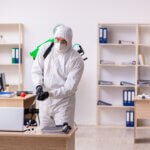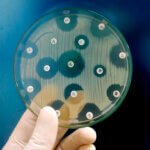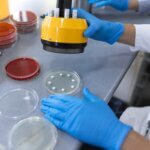Antiseptics and disinfectants are valuable products that ensure infection control in areas of healthcare and food processing as well as other areas where maintaining hygiene is essential. The efficacy of these products is affected by the specific demands of their applications. The products must meet specific efficacy criteria to provide safety and reliability. Standardized testing methods are important for verifying that these products perform as expected and protect the public against inadequate formulations. Among these standards, EN 1040 is an important standard developed by the European Committee for Standardization (CEN) for the validation of the bactericidal efficacy of disinfectant products.
This article discusses EN 1040 and its relevance, methodology, and application in various sectors.
Importance of Standardization
Disinfectant product’s performance varies as they have huge variation in terms of chemical composition and the environmental factors under which they are applied. It would be difficult to verify their effectiveness without the guidelines of a standardized protocol such as EN 1040. Standard regulations ensure the safety and efficacy of products enhancing trust among both consumers and healthcare professionals. This reduces the possibility of using ineffective products thereby decreasing potential risks.
Scope of EN 1040
EN 1040 provides guidelines for a quantitative suspension test for evaluating the bactericidal activity of chemical antiseptics and disinfectants. The standard is applicable to products/ formulations intended to be used in various critical sectors including food processing, domestic, industrial, institutional, medical, and veterinary applications thereby ensuring broad-spectrum microbial control that is critical in preventing the transmission of infectious diseases.
Methodology Overview
EN 1040 provides a detailed methodology that can be used to verify the bactericidal efficacy of products under standardized conditions and aims to provide reproducible and reliable results.
Test Organisms and Preparation Strains like Pseudomonas aeruginosa and Staphylococcus aureus are specified to be the mandatory test organisms due to their relevance in hospital-acquired infections.
Materials and Reagents: EN 1040 specifies requirements for culture media, diluents, and neutralizers to ensure that the testing conditions, other than the disinfectants, do not inhibit the growth of microorganisms thereby providing accurate results.
Procedure and Requirements
- The test organism is exposed to the test product for a set contact time.
- Simultaneously, a control test is conducted with the microbes added to water instead.
- After the contact period, a sample from both the test and control is transferred to a neutralizing solution.
- The neutralized suspension is then plated and incubated for 2 days to count the remaining viable bacteria using a plate count method.
- The bactericidal effect of the test sample is observed and compared to the control test to determine its effectiveness.
Data Analysis and Result Interpretation
Guidelines help interpret test results to ensure products labeled as bactericidal can effectively control bacterial growth. They provide a clear guideline for understanding the reduction in bacterial count.
Results from CSN EN 1040 are expressed as a log reduction in the bacterial count. A product must show at least a 5 log reduction in microbial count under specified conditions to be certified by EN 1040.
Relevance to Product Development
The standard EN 1040 helps the manufacturers in understanding how the antiseptics and disinfectants perform, whether they meet the regulatory requirements and whether any change in formulation is needed to improve the efficacy.
Building Consumer Trust
Compliance with the EN 1040 test standard is a reference for the credibility and safety of products, hence giving confidence to stakeholders about the product. Consumers trust products certified as per EN 1040 for their quality and efficacy. This trust is essential for manufacturers and suppliers in building brand loyalty and maintaining a positive reputation in competitive markets.
Regulatory Compliance
Compliance with EN 1040 might ease the way to obtaining regulatory clearances and approvals for market entry. It enables a manufacturer to claim the safety and efficacy of the product. It further ensures that the accepted health regulations within the different regions or countries are observed.
At MIS, the EN 1040 (phase 1 suspension) test is performed on a broad spectrum of chemical disinfectants and antiseptic products. Our microbiology experts employ standardized and specially adapted methods to cater to the specific testing requirements of your product samples.
We also provide quantitative suspension tests like EN 1276 (phase 2 step 1) and EN 13697 suspension tests, which evaluate the bactericidal power of chemical disinfectants and antiseptics. Reach out to us now for a price quote on EN 1040 or additional information about our microbiology testing services. Our experts are prepared to offer you extensive consultation and detailed guidance.









